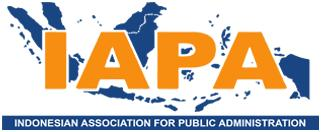Strengthening National Defense: Dynamics of Mandatory Biodiesel Policy and Renewable Energy Potential in Indonesia's Palm Oil Industry
Abstrak
Palm oil, a valuable natural resource, has emerged as a viable component of new renewable energy endeavors. Since 2006, the Indonesian government has harnessed this resource's potential by converting crude palm oil (CPO) into Fatty Acid Methyl Ester (FAME), a key constituent of biodiesel when blended with fossil fuels. Minister of Energy and Mineral Resources Regulation No. 12/2015 laid the foundation for the mandatory biodiesel policy, which, facilitated by the Badan Pengelola Dana Kelapa Sawit (BPDPKS) financing mechanism, has been operational for five years. This investigation delves into the policy's mechanics, evaluating its readiness for international markets, the challenges it confronts, and its potential to attain energy independence and augment the nation's economic prowess. Employing a qualitative approach and descriptive methodology, this study concludes: 1) Mandatory Biodiesel implementation adheres to the stipulations of Minister of Energy and Mineral Resources No. 12/2015, yet certain policy directions exhibit overlap; 2) Indonesian biodiesel grapples with the implications of RED II, projected global biodiesel utilization reductions, and US policies aimed at diminishing biodiesel consumption, implying a sustained need for incentives; 3) Energy independence, a central aspiration of the mandatory biodiesel program, remains an aspiration yet to be realized.
Kata Kunci
Teks Lengkap:
PDFReferensi
APROBI. (2020). Produksi Biofuel Naik di Masa Pandemi, Aprobi : Kami Juga Heran - APROBI. https://www.aprobi.or.id/id/produksi-biofuel-naik-di-masa-pandemi-aprobi-kami-juga-heran/
Asante, K.T. (2023) ‘The politics of policy failure in Ghana: The case of oil palm’, World Development Perspectives, 31. Available at: https://doi.org/10.1016/j.wdp.2023.100509.
Bariyah, N. (2020) ‘Developing a model of employment creation in border region: Gaharu cultivation and honey bee farming in Bengkayang, West Kalimantan, Indonesia’, Biodiversitas, 21(11), pp. 5237–5247. Available at: https://doi.org/10.13057/biodiv/d211127.
BPDP. (2018). Industri Kelapa Sawit Indonesia Serap 16,2 Juta Pekerja - Beranda. https://www.bpdp.or.id/Industri-Kelapa-Sawit-Indonesia-Serap-16-2-Juta-Pekerja
Dewi, I.G.S., Turisno, B.E. and Handayani, E. (2022) ‘Policy on Forest Land Use Change for Oil Palm Plantations in Lamandau Regency, Central Kalimantan Province, Indonesia’, Environment and Ecology Research, 10(4), pp. 461–466. Available at: https://doi.org/10.13189/eer.2022.100404.
Ditjen EBTKE. (2021). Laporan Kinerja Ditjen EBTKE Tahun 2020. https://www.esdm.go.id/assets/media/content/content-laporan-kinerja-ditjen-ebtke-2020.pdf
ESDM. (2022). Laporan Kinerja DITJEN EBTKE 2021. In Kementrian Energi dan Sumber Daya Mineral (Vol. 4, Issue 1).
Goh, C.S. and Potter, L. (2022) ‘Bio-economy for sustainable growth in developing countries: The case of oil palm in Malaysia and Indonesia’, Biofuels, Bioproducts and Biorefining, 16(6), pp. 1808–1819. Available at: https://doi.org/10.1002/bbb.2381.
Haryana, A. (2018). Biomass Utilization as Renewable Energy for Optimization of National Energy Mix. In Bappenas Working Papers (Vol. 1, Issue 1). Kementerian Perencanaan Pembangunan Nasional (Bappenas). https://doi.org/10.47266/BWP.V1I1.9
Hashemvand Khiabani, P., & Takeuchi, W. (2020). Assessment of oil palm yield and biophysical suitability in Indonesia and Malaysia. International Journal of Remote Sensing, 41(22), 8520–8546.
Hein, L. et al. (2022) ‘Effects of soil subsidence on plantation agriculture in Indonesian peatlands’, Regional Environmental Change, 22(4). Available at: https://doi.org/10.1007/s10113-022-01979-z.
Lestarida, R. (2020). Pengaruh Ukuran Perusahaan, Kepemilikan Institusional, Kepemilikan Keluarga, Dan Gender Diversity Terhadap Agresivitas Pajak Dengan Corporate Governance Sebagai Variabel Moderasi [UIN Syarif Hidayatullah Jakarta]. http://repository.uinjkt.ac.id/dspace/handle/123456789/51860
LPEM FEB UI. (2020). Risiko Kebijakan Biodiesel dari Sudut Pandang Indikator Makroekonomi dan Lingkungan. https://www.greenpeace.org/static/planet4-indonesia-stateless/2020/11/cc19cf62-laporan-biodiesel-lpem_bahasa-indonesia_final.pdf
Mangeswuri, D. R. (2019). Hambatan Ekspor Minyak Sawit Ke Uni Eropa Dan Upaya Mengatasinya. Info Singkat, 11(8), 19–24. https://berkas.dpr.go.id/puslit/files/info_singkat/Info Singkat-XI-8-II-P3DI-April-2019-220.pdf
Moleong, L. J. (2018). Metodologi Penelitian Kualitatif (38th ed.). PT Remaja Rosdakarya.
Nambiappan, B., Ismail, A., Hashim, N., Ismail, N., Shahari, D. N., Idris, N. A. N., et al. (2018). Malaysia: 100 years of resilient palm oil economic performance. Journal of Oil Palm Research, 30(1), 13–25.
Pradiptyo, R., Saputra, W., Nugroho, A., & Hutami, A. (2019). Ketika Kekayaan Alam Tidak Menyejahterakan: Pembelajaran dari Pencegahan Korupsi Sektor Sumber Daya Alam. Jurnal Antikorupsi INTEGRITAS, 5(2), 49–63. https://doi.org/10.32697/integritas.v5i2-2.
Purnomo, H., Okarda, B., Dermawan, A., Ilham, Q. P., Pacheco, P., Nurfatriani, F., et al. (2020). Reconciling oil palm economic development and environmental conservation in Indonesia: A value chain dynamic approach. Forest Policy and Economics, 111, Article 102089
Purba, K.F. et al. (2023) ‘Foresight Strategy for Sustainable Oil Palm Development in East Halmahera Indonesia’, International Journal of Sustainable Development and Planning, 18(7), pp. 2167–2175. Available at: https://doi.org/10.18280/ijsdp.180720.
Rahayu, S. W., & Sugianto, F. (2020). Implikasi Kebijakan dan Diskriminasi Pelarangan Ekspor dan Impor Minyak Kelapa Sawit dan Bijih Nikel Terhadap Perekonomian Indonesia. 16, 224–236.
Rambe, K. R., Kusnadi, N., & Suharno, S. (2019). Dynamics of Indonesian Palm Oil Biodiesel Policy Development. Jurnal Sosial Ekonomi Pertanian, 15(3), 239–252.
Saputra, W., Sulistyanto, S., & Isnaini, K. N. (2022). Analisis Kerentanan Korupsi dalam Kebijakan Subsidi Biodiesel di Indonesia. Integritas: Jurnal Antikorupsi, 7(2), 279–290. https://doi.org/10.32697/integritas.v7i2.815
Serrano, A. (2023) ‘Restructuring palm oil value chain governance in Colombia through long-term labour control’, Journal of Agrarian Change, 23(3), pp. 547–567. Available at: https://doi.org/10.1111/joac.12528.
Sibhatu, K.T. (2023) ‘Oil palm boom: its socioeconomic use and abuse’, Frontiers in Sustainable Food Systems, 7. Available at: https://doi.org/10.3389/fsufs.2023.1083022.
Sunarminto, T., Mijiarto, J. and Prabowo, E.D. (2019) ‘Socioeconomic and cultural impacts of oil palm plantation development in Indonesia’, in IOP Conference Series: Earth and Environmental Science. Available at: https://doi.org/10.1088/1755-1315/336/1/012008.
Sylvana, Y., Firmansyah, Y., Wijaya, H., & Angelika, M. (2020). The Role of the WTO in Mediate Dispute Palm Oil Between Indonesia and the European Union. International Journal of Social Science and Religion (IJSSR), 1(3), 233–250. https://doi.org/10.53639/IJSSR.V1I3.16
TRASE. (2020). Kepemilikan dan Dominasi Korporasi pada Rantai Pasok Minyak Kelapa Sawit di Indonesia. http://resources.trase.earth/documents/infobriefs/Infobrief9IND.pdf
DOI: https://doi.org/10.24198/jmpp.v7i2.46798
Refbacks
- Saat ini tidak ada refbacks.
Jurnal Manajemen Pelayanan Publik Indexed By:



This work is licensed under a Creative Commons Attribution-ShareAlike 4.0 International License.


















21.png)



.png)